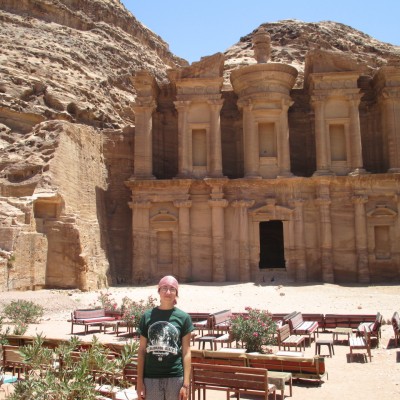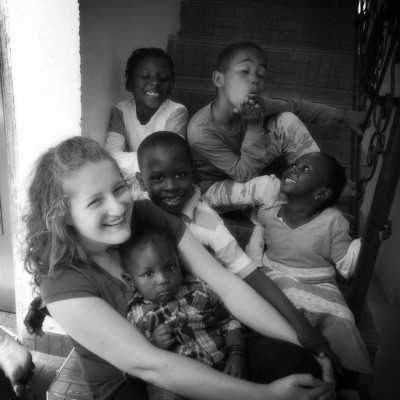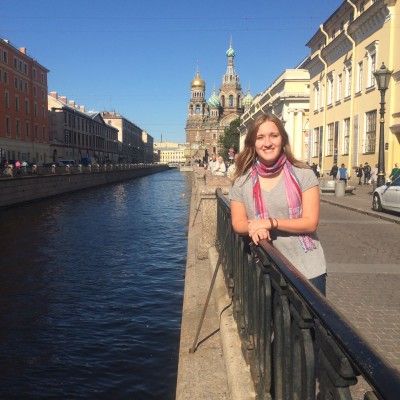As appearing in SOURCE
Three liberal arts students have been awarded Critical Language Scholarships (CLS) and will be traveling abroad this summer to experience the equivalent of a year of college language courses within a two-month period.
The CLS program provides graduate and undergraduate students the opportunity to study critical needs languages and cultures, as designated by the U.S. Department of State. Students are able to pick their language of choice to learn, but not the region or country that will host them.
Mary Swanson, associate director of the Office for Undergraduate Research and Artistry, described the program as being “quite competitive.” Last year, there were only 550 recipients and numbers for this year have not yet been released.
“Applicants must demonstrate a commitment to the language they’re studying,” Swanson said of the application process.
Amman, Jordan

Elizabeth Hale is an International Studies major with a concentration in Middle Eastern and North African studies. She has a minor in Arabic studies and has had a passion for the language since she was 13.
“I started studying Arabic when I was in eighth grade,” Hale said.
Through this experience, Hale described how she wants to improve her Arabic skills both formally and informally.
“I hope to get to a point of fluency,” she said. “The contrast between dialects sometimes hinders the ability for fluid conversation.”
Hale plans to become an Arabic language professor. She wants to use the CLS experience as an opportunity to broaden the language focus of the U.S. and inspire more people to learn and speak critical languages.
Arabic is the fourth most spoken language in the world.
Arusha, Tanzania
Fort Collins native Kelli Wick is majoring in Cultural Anthropology with minors in French, German and International Development. She will be traveling to Tanzania, Africa, to study Swahili.

“I’ve never spoken the language,” Wick said. “I’m using an online program for training, and a CSU staff member has offered to tutor me.”
She said that when working abroad, it is important to use that region’s language to fully understand the culture. She has wanted to travel to East Africa since she was 11.
“I have to write a letter to my host family in Swahili before I arrive, so I’m trying to start learning now,” Wick said.
In her experience at CSU, Wick has studied abroad, as well as traveled and worked in France, Senegal, Austria and nine other countries as a way to broaden her cultural roots.
Wick hopes to work in international development in education or public health. She is also considering teaching abroad, joining the Peace Corps, or working with refugee populations in Seattle.
Swahili is the third most common language in Africa.
Nizhny Novgorod, Russia

Jenna Hamilton has traveled to Russia several times, including a study abroad experience in fall 2014 to Saint Petersburg. She is an Economics and International Studies major with a minor in German and Russian languages.
Hamilton hopes that the CLS experience will help her achieve Russian fluency. She also said there are likely dialect differences between Saint Petersburg and Nizhny Novgorod and she wants to fully understand this critical language.
“We have to take a language pledge when we arrive, so we are only allowed to speak the language while on site,” Hamilton said.
Hamilton wants to work in higher education or international education after she graduates to help other students have the opportunity to study abroad.
“Don’t be afraid of the less traditional countries [when looking to study abroad],” Hamilton said. Russian is the eighth most spoken language in the world.
To donate to scholarships in the College of Liberal Arts, visit the scholarship giving page and search for the scholarship of your choice.
